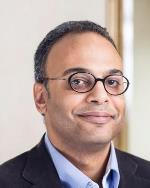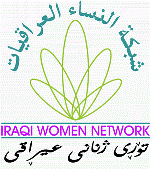Social Watch news
Published on Wed, 2015-11-11 15:00
The arbitrary detention of Hossam Bahgat, (the founder of the Egyptian Initiative for Personal Rights, an independent Egyptian human rights organization and a journalist at Mada Masr, an online news site), on November 9th, 2015 is a mere reflection of the crackdown on civil rights in Egypt and the grim truth about the restricted enjoyment of the ‘’freedom’’ of expression and opinion in the country, that is essentially guaranteed by the Egyptian Constitution Article 651 and Article 19th of the International Covenant on Civil and Political Rights, that Egypt is party to.
|
Published on Wed, 2015-11-11 14:47
With this year’s Business and Human Rights Forum (November 16-18) scheduled to take place at almost the same time as the Group of 20 Summit (November 14-15), the temptation to highlight the dissonance between what is happening in each of these venues is just too great to resist.
At the Forum on Business and Human Rights, the main theme will revolve around a report on measuring implementation of the Guiding Principles on Business and Human Rights (“Guiding Principles”), submitted last July by the Working Group on Business and Human Rights.
|
Published on Fri, 2015-11-06 17:14
Fifteen years after the adoption of Security Council resolution 1325 on women and peace and security, Iraqi women and girls are being displaced, abducted, enslaved and made victims of sexual and physical violence as a result of the escalating violence. This has increased since June 2014, when one third of Iraq was occupied by gangs of ISIS (Daesh) perpetrating the most heinous crimes, as contained in the report of the United Nations Office of High Commissioner for human rights in March 2015.
In an atmosphere of unbridled violence, weak law enforcement institutions, absence of protection mechanisms and the entrenching of tribal and religious customs and traditions, women are more vulnerable to physical and sexual abuse, domestic violence, and denial of basic rights such as education, along with the emergence of phenomena and harmful practices, such as child marriage, temporary marriage, trafficking in women, so-called honour crimes. Women become the price to pay debts and settle clan disputes rather than be an active element in resolving disputes and negotiations, as stressed in the resolution 1325.
|
Published on Fri, 2015-11-06 15:25
The Committee on Economic Social and Cultural Rights (“the Committee”), deciding on the first case filed before it using a novel individual complaint mechanism, took the opportunity to address the behavior of a private bank. The body mandated Spain to reform aspects of its legislation that allowed banking entities to get away with abuses in mortgage proceedings thus violating the right to housing consecrated by the International Covenant on Economic, Social and Cultural Rights (ICESCR).
In 2008, States adopted an Optional Protocol to the International Covenant on Economic, Social and Cultural Rights which, among other things, created a remedy allowing individuals to bring a complain before the respective Treaty –monitoring body (the Committee on Economic Social and Cultural Rights).
|
|
Published on Fri, 2015-10-30 20:56
|
Published on Sun, 2015-10-25 23:00
Twenty years have passed since the United Nations Fourth World Conference on Women was held in Beijing. Then, a parallel NGO Forum—entitled “Look at the World through Women’s Eyes”—was also held during the official conference. Over ten thousands of women from all over the world, including over 70 women from Thailand, participated. It was also the first time that Thai women at grassroots level took part in an international conference.
Many of these participating Thai women were very excited to find out that so many groups of women from different corners of the world shared common problems. The difficulties that affected women ranged from domestic violence to structural violence in society. For instance, poverty, conflict over resources, destruction of natural resources and the environment, changing pattern of women’s work, massive lay-offs, subcontraction of homeworking, and the informalization of formal labour sector. Several issues were new to the Thai women’s movement, such as economic globalization, structural adjustment programme, or certain significant but distant topics like peace and human security, militarization and arms trade.
|
Published on Fri, 2015-10-23 22:34
It has been reported that ten Eritrean footballers are seeking political asylum in Botswana after a World Cup qualifying match that took place between Eritrea and Botswana on 10 October.
According to the Sunday Standard, “[s]ources from within the Eritrean diplomatic service have revealed that Eritrea is piling pressure on Botswana to have the ten players repatriated” with concerns being expressed by the Eritrean Movement for Democracy and Human Rights (EMDHR) that plans to repatriate are under way.
|
Published on Tue, 2015-10-20 15:13
Last month, the “Sustainable Development Goals” (SDGs) were launched at the UN in New York. This is the outcome of two years of consultations, lobbying, and debate about what the “post-2015” agenda should look like. This agenda is likely to have far-reaching implications both for development finance and for the promotion of social and economic rights. However, why adopt goals at all? Any systematic effort to answer this seemingly elementary conceptual question has been disturbingly absent. What’s more, not only has this basic question not been answered, what is most striking is that it has hardly been asked.
|
Published on Thu, 2015-10-15 14:17
Plataforma 2015 y más, Social Watch focal point in Spain, launched the publication A research programme for Policy Coherence for Development Analysis. This study summarises a research programme based on a comprehensive view of Policy Coherence for Development using a multidimensional approach for human development. This programme studies coherence based on a quantitative analysis of public policy formulation, action and impact, complemented with quantitative research towards a Policy Coherence for Development Index (PCDI).
|
Published on Thu, 2015-10-15 13:57
Iraqi al-Amal Association in collaboration with Ala Ali (Independent Researcher/Analyst and Peace Activist) conducted a focus-group based conflict analysis of the Iraqi province of Nineveh. The findings provide important insights into recent developments in Iraq, and the advancement of ISIS.
Several key issues contributing to and sustaining conflict were identified through this research, as were points of entry for peacebuilding, which can be capitalised on to reduce tensions.
|
SUSCRIBE TO OUR NEWSLETTER
Submit

|









